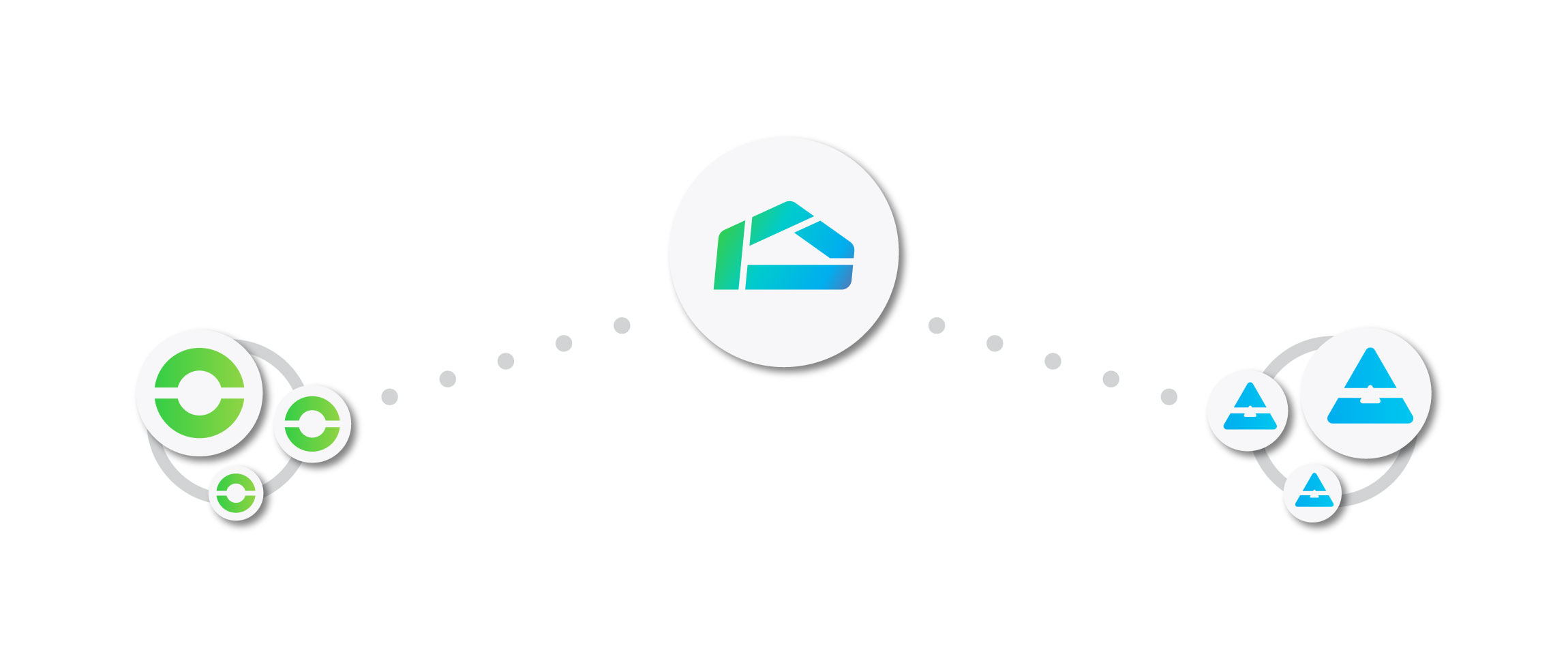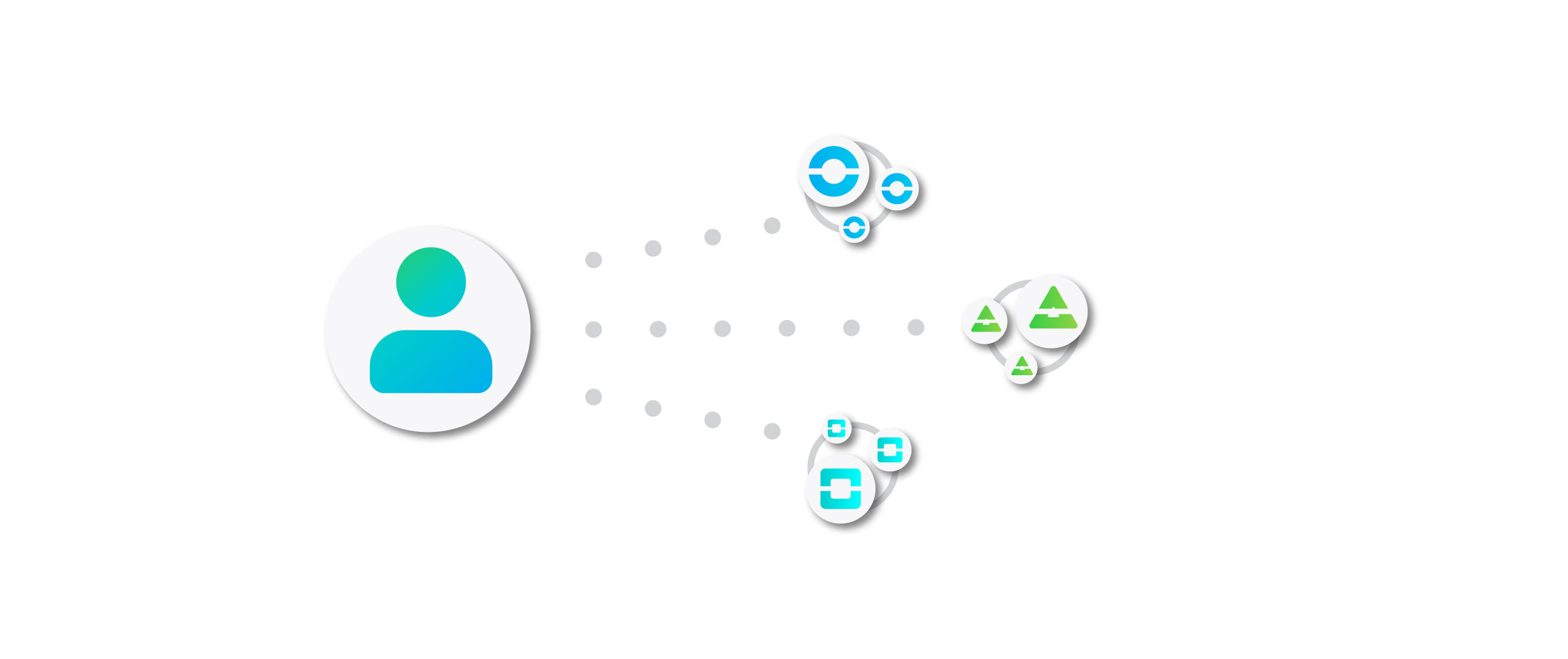The global economy has been through several ups and downs over the years. Market downturns and recessions aren’t new, but their impact is becoming increasingly detrimental in today’s highly connected world.
During periods of negative growth, businesses face several challenges, such as declining revenue and consumer confidence, as well as rising costs. However, companies equipped with the right tools and strategies can find new business opportunities even under tough economic conditions.
To thrive in market uncertainty, companies are leveraging data insights to diversify into new business opportunities and make informed decisions that help them sustain their market share and growth.
In this article, we’ll explore how companies in different sectors, such as real estate, private banking, retail, and health insurance, are using business intelligence and data best practices to find new business opportunities during market downturns and recessions.
Catching the Endless Real Estate Wave
One of the most important economic indicators, the real estate sector is often affected by market downturns and recessions. During these periods, the demand for housing and commercial properties decreases, causing prices to drop and transactions to decline.
Real estate companies are using data to find new business opportunities by analyzing consumer behavior and preferences. By tracking and analyzing data on consumer spending patterns and property searches, real estate companies can identify trends and areas of high demand, which can inform their investment decisions.
For example, if a real estate developer sees that consumers are showing increased interest in sustainable and energy-efficient homes, it can invest in properties that meet consumer demand and target its marketing efforts toward that market segment.
Another way is by leveraging predictive analytics. Predictive analytics analyzes historical data and predicts future market trends. Insights derived from historical data can help companies identify opportunities for growth and make strategic decisions about their investments.
For example, if a company predicts that a particular geographic area is likely to experience increased demand for housing, it can negotiate deals and invest in properties in that area to benefit from the anticipated growth.
Injecting Community into Private Banking
The private banking sector is another area where data insights help companies find new business opportunities during market downturns and recessions. Private banks provide wealth management services to high-net-worth individuals, and during market downturns, they may become increasingly cautious about their investments.
However, private banks that use data to understand their clients’ needs and preferences can find new opportunities in this market.
One way is by leveraging customer relationship management (CRM) systems. CRMs provide private banks with a comprehensive view of their clients’ financial behavior and investment preferences, which can inform their business development strategies.
For example, if a private bank notices that a particular client is showing increased interest in a particular investment, it can offer that investment to clients with a similar investment profile and expand its offerings in that area.
Similarly, private banks can expand their product offerings, such as insurance and retirement products that are more attractive for clients to place their funds during market downtrends. Having a system that can analyze client spending creates opportunities for banks to identify new products and services worth integrating into their list of products and services.
Business Diversification in Retail
The retail sector is one of the most competitive and dynamic industries, and market downturns and recessions can cause significant negative impact. During these periods, consumers tend to reduce their spending, causing a decrease in demand for products in almost every category.
However, retailers can use data to find new business opportunities by analyzing consumer behavior and preferences. By tracking and analyzing data on consumer spending patterns, product searches, and customer feedback, they can identify trends and areas of high demand, which inform their product offerings and marketing strategies.
But retailers can’t do this without the right tools to collect, analyze, and visualize data. These include business intelligence software, workflow automation, and data visualization tools.
As data insights surface, communication with the relevant stakeholders is key to making informed decisions and implementing new growth strategies, such as updating product offerings, adjusting marketing campaigns, expanding the market, or investing in buyer-friendly technology.
New Dynamics in Health Insurance with Data
The health insurance sector is also affected by market downturns and recessions as people with health coverage tend to decrease during these periods. This inevitably decreases the number of patient visits and delivery of care, which hurts private practices the most.
Leveraging data using software to track claims data and identify patterns in the types of services being used, the demographics of the patients using those services, and the cost of those services helps the provider make informed decisions about their product offerings and pricing strategies as well as identifies areas where they may need to improve their coverage options.
Gathering data on customer interactions, such as customer service inquiries, website visits, and social media activity, helps the provider understand the needs and preferences of their customers, which can also inform their product offerings and marketing strategies.
Additionally, the provider can use CRM analytics tools to track sales data and identify trends in the types of products that are selling well and the demographics of the customers buying those products.
Thriving in Economic Downturns Using Data
Market downturns and recessions may be challenging for businesses, but companies that use data insights can find new opportunities for growth during these periods. By leveraging business intelligence software and data best practices, companies in different sectors can make informed decisions to remain on track for growth.
Whether it’s through analyzing consumer behavior and preferences, leveraging predictive analytics, or a combination of both, data analysis is a powerful tool that companies must use to thrive in uncertain market conditions.
As we continue to experience a market slowdown, see what opportunities your data could unlock. We have the tools to help and are ready to support you. Get in touch with us here.











